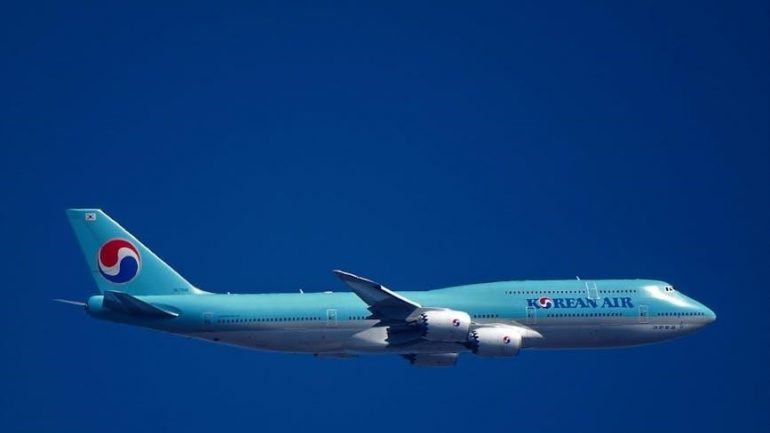A bartender plays a crucial role in the food and beverage industry, ensuring customer satisfaction by preparing drinks, managing the bar area, and maintaining a positive experience.
1.1 Overview of the Bartender Role
A bartender is responsible for preparing and serving alcoholic and non-alcoholic beverages, ensuring a memorable experience for patrons. They greet guests, take orders, and serve drinks while maintaining a clean and organized bar area. Bartenders must possess knowledge of standard recipes, manage bar supplies, and handle cash and credit transactions. They also assess customer preferences and make recommendations, promoting menu items and practicing responsible alcohol service. Effective communication and teamwork with other staff are essential to ensure seamless service and customer satisfaction in fast-paced environments.
1.2 Importance of Bartenders in the Food and Beverage Industry
Bartenders are integral to the food and beverage industry, contributing significantly to customer satisfaction and business success. They create a welcoming atmosphere, craft memorable experiences, and drive revenue by promoting menu items. Their role extends beyond drink preparation, as they enhance guest interactions, ensure compliance with safety standards, and maintain operational efficiency. Effective bartenders elevate the overall dining experience, making them vital assets to restaurants, bars, and hotels, ensuring a positive reputation and repeat business.

Primary Duties of a Bartender
A bartender’s primary duties include preparing beverages, interacting with customers, serving snacks, and maintaining bar cleanliness. They ensure efficient service and a welcoming environment for patrons.
2.1 Preparing Alcoholic and Non-Alcoholic Beverages
Bartenders are responsible for crafting both alcoholic and non-alcoholic beverages using a variety of ingredients, such as spirits, mixers, fruits, and garnishes. They must follow standard recipes to ensure consistency and quality in every drink. This includes mixing cocktails, serving wine, and pouring beer. Bartenders also prepare non-alcoholic options like mocktails or virgin drinks to cater to all patrons. They must stay knowledgeable about drink menus and ingredient availability to efficiently fulfill orders. Properly greeting guests and managing drink orders are also key parts of this duty, ensuring a smooth and enjoyable experience for customers.
2.2 Interacting with Customers and Taking Orders
Bartenders are responsible for engaging with customers, taking drink orders, and ensuring their preferences are met. They must listen actively, ask questions to clarify needs, and make recommendations based on the menu. This interaction requires strong communication skills and the ability to work efficiently in a fast-paced environment. Bartenders also need to manage multiple orders simultaneously, ensuring accuracy and timely delivery. Maintaining a friendly and approachable demeanor is crucial to enhance the customer experience and build rapport, leading to increased satisfaction and repeat business.
2.3 Serving Snacks and Drinks
Serving snacks and drinks is a fundamental part of a bartender’s role. Bartenders ensure that beverages and accompanying snacks are delivered to customers promptly and accurately. This involves checking orders for correctness, presenting drinks attractively, and offering complementary snacks or nibbles. They must also monitor portion control and maintain the cleanliness of serving areas. Effective service requires attention to detail, ensuring that the presentation of snacks and drinks enhances the overall customer experience while maintaining a friendly and professional demeanor. This responsibility directly contributes to customer satisfaction and the establishment’s reputation.
2.4 Maintaining Cleanliness of the Bar Area
Maintaining the cleanliness of the bar area is a critical duty for bartenders. This includes sanitizing surfaces, equipment, and tools to ensure a hygienic environment. Bartenders must regularly clean glasses, utensils, and dispensers, as well as wipe down countertops and sinks. They also restock supplies, such as napkins, straws, and garnishes, ensuring the bar is well-organized. Proper waste disposal and immediate cleanup of spills are essential to prevent contamination. By adhering to high hygiene standards, bartenders create a safe and inviting space for patrons, directly impacting customer satisfaction and operational efficiency.

Key Responsibilities in Bartender Job Description
Bartenders are responsible for mixing drinks, supervising staff, managing supplies, and handling payments. They ensure high-quality service, maintain hygiene, and adhere to operational standards consistently.
3.1 Mixing Drinks According to Standard Recipes
Bartenders must prepare beverages using established recipes to ensure consistency and quality. This involves measuring ingredients precisely, maintaining flavor balance, and presenting drinks attractively. Attention to detail is crucial to meet customer expectations and uphold the establishment’s reputation. By adhering to standard recipes, bartenders deliver a reliable and enjoyable experience, fostering customer satisfaction and loyalty. This skill is fundamental to their role and directly impacts the overall quality of service in the food and beverage industry.
3.2 Supervising Bar Staff and Other Bartenders
Supervising bar staff and other bartenders is a key responsibility, ensuring seamless operations and adherence to standards. This includes monitoring performance, enforcing safety protocols, and resolving conflicts. Bartenders must lead by example, fostering a positive and efficient work environment. They also provide guidance and training to less experienced staff, ensuring all team members deliver high-quality service. Effective supervision enhances customer satisfaction and maintains the overall reputation of the establishment, making it a critical aspect of the bartender’s role in a team-oriented setting.
3.3 Managing Bar Supplies and Stock
Managing bar supplies and stock is essential to ensure the smooth operation of the bar. This involves maintaining accurate records of inventory, monitoring stock levels, and ordering supplies as needed. Bartenders must track the usage of ingredients, spirits, and other materials to prevent shortages or overstocking. They also verify deliveries and ensure all items are stored properly. Effective inventory management helps control costs, reduces waste, and ensures that the bar is always prepared to meet customer demands efficiently and effectively at all times.
3.4 Collecting Payments for Drinks Served
Collecting payments for drinks served is a critical responsibility of bartenders. This involves handling cash, credit card transactions, and mobile payments accurately. Bartenders must ensure that each transaction is processed correctly, providing change when necessary and issuing receipts. They also manage bar tabs, ensuring they are opened and closed properly, and handle any discrepancies or issues that arise during payment. Maintaining a secure and organized system for handling money is essential to prevent errors and ensure customer satisfaction, while also protecting the establishment’s financial integrity and operational efficiency.

Operational Duties of a Bartender
Operational duties of a bartender include setting up the bar area, inspecting supplies, requesting stock as needed, and maintaining knowledge of the beverage operations manual.
4.1 Setting Up the Bar Area Before Service
Setting up the bar area before service is essential for ensuring smooth operations. This includes arranging glasses, utensils, and equipment in an accessible manner. Restocking supplies like napkins, straws, and garnishes is also crucial. Bartenders must organize spirits, mixers, and juices according to popularity and ease of access. Additionally, they prepare ice, slice fruits, and chill beverages. Ensuring all equipment, such as blenders and juice dispensers, is functional and clean is vital. A well-prepared bar area enhances efficiency and contributes to a positive customer experience.
4.2 Inspecting the Bar for Adequate Supplies
Inspecting the bar for adequate supplies ensures uninterrupted service. Bartenders check liquor levels, mixers, juices, and garnishes, ensuring sufficient stock for expected demand. They verify the availability of ice, clean glasses, and utensils. Additionally, they inspect equipment functionality, such as blenders and coolers, to prevent operational disruptions. This step is critical for maintaining efficiency and avoiding shortages during peak hours, ultimately contributing to a seamless customer experience and preventing last-minute rushes for replenishments.
4.3 Requesting Additional Supplies as Needed
Requesting additional supplies is essential to ensure the bar remains well-stocked. Bartenders monitor inventory levels and identify when items like spirits, mixers, or garnishes are running low. They notify management or the storeroom promptly to replenish stock, preventing shortages during service. This proactive approach ensures smooth operations, especially during peak hours. Effective communication and timely requests are critical to maintaining efficiency and avoiding disruptions, ultimately enhancing the overall customer experience by ensuring all drink orders can be fulfilled without delay or inconvenience.
4.4 Maintaining Knowledge of the Beverage Operations Manual
Bartenders must stay informed about the Beverage Operations Manual, which outlines standard procedures for drink preparation, safety protocols, and inventory management. This knowledge ensures consistency in serving high-quality beverages and adherence to health regulations. Familiarity with the manual allows bartenders to efficiently address operational challenges, such as managing stock levels or resolving equipment issues. Regular updates and training on the manual are essential to maintain expertise and deliver exceptional service while complying with industry standards and organizational policies.
Customer Service Responsibilities
Bartenders ensure excellent customer experiences by greeting guests, assessing preferences, making recommendations, and practicing responsible alcohol service, fostering a welcoming and personalized environment for patrons.
5.1 Greeting Guests and Thanking Them
Greeting guests warmly upon arrival and thanking them as they leave is essential for creating a positive experience. Bartenders ensure a friendly first impression by addressing patrons with a smile and personalized acknowledgments. This practice sets the tone for a welcoming atmosphere and fosters customer satisfaction. Additionally, thanking guests demonstrates appreciation for their visit, encouraging repeat business and positive reviews. Effective communication and genuine engagement are key to making guests feel valued, contributing to overall customer loyalty and the establishment’s reputation.
5.2 Assessing Customer Needs and Preferences
Bartenders are skilled at observing and understanding customer preferences to deliver personalized service. By engaging in conversation, they identify drink preferences, dietary restrictions, and special requests. This assessment allows bartenders to recommend tailored options, ensuring a satisfying experience. Attention to detail, such as remembering regulars’ favorite drinks, enhances customer loyalty. Bartenders also adapt to preferences like flavor profiles or alcohol content, offering alternatives when necessary. This proactive approach ensures guests feel understood and valued, contributing to a positive and memorable visit. Effective communication is key to meeting diverse customer needs effectively.
5.3 Making Drink Recommendations
Making drink recommendations is a key part of a bartender’s role, enhancing the customer experience by suggesting the perfect beverage. Bartenders use their knowledge of ingredients, flavor profiles, and drink trends to propose options that align with a customer’s tastes. They might highlight special cocktails, seasonal offerings, or pairing suggestions with food. Effective recommendations not only increase customer satisfaction but also boost sales. Bartenders stay updated on menu items and preferences to provide informed and appealing suggestions, ensuring guests discover new favorites and enjoy their experience.
5.4 Practicing Responsible Service of Alcohol
Practicing responsible service of alcohol is a critical duty for bartenders to ensure customer safety and compliance with legal standards. This involves assessing a customer’s intoxication level, refusing service to those who appear intoxicated, and checking identification to prevent underage drinking. Bartenders must also be aware of drink limits and promote non-alcoholic alternatives when necessary. By adhering to these practices, bartenders help maintain a safe environment, reduce alcohol-related risks, and uphold the establishment’s reputation and legal obligations.

Financial and Transactional Duties
Bartenders handle cash and credit transactions, maintain accurate sales records, and manage bar tabs, ensuring all financial processes are executed smoothly and with accountability.
6.1 Handling Cash and Credit Transactions
Bartenders are responsible for efficiently handling cash and credit transactions, ensuring accuracy and accountability. This includes operating point-of-sale systems, managing change, and processing payments securely. They must maintain a high level of attention to detail to prevent errors, ensuring all transactions are recorded correctly. Handling financial interactions smoothly is crucial for customer satisfaction and maintaining trust. Bartenders also reconcile cash drawers at the end of shifts, verifying totals and addressing any discrepancies. This duty requires strong numerical skills and the ability to work efficiently in a fast-paced environment while adhering to financial protocols.
6.2 Maintaining Accurate Records of Sales
Bartenders must maintain precise records of daily sales, including tracking beverage orders and monitoring inventory levels. Accurate documentation ensures accountability and helps in managing stock effectively. This involves updating sales reports, noting special requests, and ensuring all transactions are logged. Maintaining clear records also aids in identifying trends and optimizing menu offerings. bartenders use point-of-sale systems to generate reports, which are essential for financial audits and inventory management. This task requires attention to detail and organizational skills to ensure data accuracy and compliance with establishment policies. It is a critical aspect of operational efficiency and financial transparency.
6.4 Managing Bar Tabs and Closing Them Properly
Bartenders are responsible for managing bar tabs, ensuring all open accounts are accurately tracked and settled. This includes monitoring ongoing orders, updating tabs in real-time, and confirming payments. Properly closing tabs involves verifying balances, processing final payments, and ensuring no discrepancies. Bartenders must also handle split payments or transfers to other tabs seamlessly. Using point-of-sale systems, they ensure all transactions are recorded and closed accurately. This task requires attention to detail to prevent errors and maintain customer trust, ensuring a smooth end to the service experience.
Health and Safety Responsibilities
Bartenders must ensure compliance with hygiene standards, monitor equipment cleanliness, and report safety hazards to maintain a secure environment for both customers and staff.
7.1 Ensuring Compliance with Hygiene Standards
Bartenders are responsible for maintaining high hygiene standards by regularly sanitizing surfaces, utensils, and equipment. They must wash hands frequently and ensure all beverages are prepared in a clean environment. Proper waste disposal and adherence to health regulations are essential. Bartenders also monitor the cleanliness of glasses, bottles, and tools to prevent contamination. By following strict hygiene protocols, bartenders help protect the health and safety of customers and staff, ensuring a clean and safe bar experience at all times.
7.2 Monitoring the Cleanliness of Equipment and Tools
Bartenders must ensure all equipment and tools, such as blenders, shakers, and glasses, are clean and in good condition. Regular sanitization of mixers, juicers, and other machinery is essential to prevent contamination. Bartenders also inspect tools for damage or wear and replace them when necessary. Proper storage and organization of equipment help maintain efficiency and hygiene. By consistently monitoring and maintaining clean equipment, bartenders ensure smooth operations and uphold high standards of cleanliness, contributing to a safe and pleasant environment for both staff and customers.
7.3 Reporting Any Safety Hazards to Management
Bartenders are responsible for identifying and reporting any safety hazards in the bar area to management promptly. This includes spills, broken glass, or malfunctioning equipment that could pose risks to staff or customers. Regular inspections of the workspace and tools ensure potential hazards are addressed before they escalate. Reporting safety concerns helps maintain a secure environment, prevents accidents, and ensures compliance with health and safety regulations. Bartenders must document incidents and follow up to confirm resolution, fostering a culture of safety and accountability in the workplace.
Team Collaboration and Communication
Bartenders collaborate with wait staff, kitchen teams, and supervisors to ensure seamless service, communicating effectively and participating in pre-shift meetings to align team efforts.
8.1 Working with Wait Staff and Kitchen Teams
Bartenders collaborate closely with wait staff and kitchen teams to ensure efficient service. They communicate orders accurately, coordinate timing for food and drink delivery, and support each other during peak periods. Effective teamwork ensures seamless customer experiences, with bartenders often assisting wait staff by preparing drinks promptly. Clear communication helps prevent errors and enhances overall service quality, fostering a positive environment for both staff and patrons. This teamwork is essential for maintaining high standards of hospitality and ensuring customer satisfaction in fast-paced environments.
8.2 Communicating with Supervisors and Managers
Effective communication with supervisors and managers is vital for bartenders. They receive daily tasks, discuss challenges, and report inventory needs. Regular updates ensure smooth operations, while feedback helps improve service quality. Bartenders may also share customer preferences or concerns, aiding in menu adjustments. Clear dialogue fosters a collaborative environment, enabling managers to support staff and maintain high standards. This communication ensures alignment with establishment goals and enhances overall efficiency, contributing to a positive workplace culture and customer satisfaction.
8.3 Participating in Pre-Shift Meetings
Participating in pre-shift meetings is a key responsibility for bartenders. These meetings review daily tasks, discuss specials, and address challenges. Bartenders learn about inventory shortages, new menu items, and customer preferences. They also receive feedback on performance and service quality. Active participation ensures everyone is aligned and prepared for the shift. This collaboration fosters a cohesive team environment, enabling bartenders to provide consistent and excellent service. Pre-shift meetings are essential for maintaining efficiency and ensuring a smooth operation during peak hours, directly impacting customer satisfaction and overall bar performance.
Additional Responsibilities
Bartenders often have additional responsibilities such as promoting bar food and drink menu items, assisting guests with pairing suggestions, and supporting special events and functions.
9.1 Promoting Bar Food and Drink Menu Items
Bartenders are often responsible for promoting bar food and drink menu items to enhance customer experience and increase sales. This involves upselling, highlighting daily specials, and making personalized recommendations based on patron preferences. By showcasing the bar’s offerings, bartenders help create a cohesive dining and drinking experience. Effective promotion also includes sharing knowledge of the menu, such as pairing drinks with specific dishes, to ensure guests enjoy their visit fully. This role requires strong communication skills and a deep understanding of the bar’s offerings.
9.2 Assisting Guests with Food and Drink Pairing Suggestions
Bartenders play a key role in enhancing the dining experience by assisting guests with food and drink pairing suggestions. This involves having in-depth knowledge of both the bar and kitchen menus to recommend complementary combinations. Whether it’s pairing wine with steak or craft beer with burgers, bartenders help guests make informed choices. They also stay updated on drink trends and menu changes to provide relevant advice. By offering personalized pairing suggestions, bartenders elevate the overall dining experience, ensuring guests enjoy their meals and drinks to the fullest. This expertise fosters customer satisfaction and loyalty, making the bar a memorable destination.
9.3 Supporting Special Events and Functions
Bartenders often support special events and functions, ensuring seamless service in high-pressure environments. This includes setting up temporary bars, creating event-specific cocktails, and managing large groups efficiently. They collaborate with event planners to tailor drink menus to themes or preferences. Bartenders also handle cash transactions and maintain cleanliness during events. Their adaptability and attention to detail ensure that guests have an exceptional experience, making them integral to the success of weddings, parties, and corporate gatherings. This role requires strong organizational skills and the ability to multitask effectively under tight deadlines.
A bartender is a skilled professional responsible for preparing drinks, providing excellent customer service, and maintaining bar operations. Their role is crucial for customer satisfaction and operational efficiency, requiring teamwork and adaptability to ensure a memorable experience.
10.1 Summary of Bartender Duties and Responsibilities
A bartender is responsible for preparing alcoholic and non-alcoholic beverages, interacting with customers, and maintaining a clean bar area. They manage supplies, handle payments, and ensure safety. Bartenders must work efficiently, communicate effectively with staff, and provide excellent customer service. Their role is crucial for ensuring a positive patron experience, operational efficiency, and adherence to health and safety standards. Effective bartending involves multitasking, attention to detail, and a deep understanding of drink recipes and customer preferences, making it a vital role in the food and beverage industry.
10.2 The Impact of Effective Bartending on Customer Satisfaction
Effective bartending significantly enhances customer satisfaction by providing excellent service and high-quality drinks. Bartenders who engage with patrons, offer personalized recommendations, and ensure timely delivery of orders create a positive experience. Their ability to manage the bar efficiently and maintain a clean environment further boosts satisfaction. A skilled bartender fosters a welcoming atmosphere, encouraging repeat visits and positive reviews. Ultimately, their role is pivotal in driving customer loyalty and ensuring the overall success of the establishment. Their efforts directly contribute to a memorable and enjoyable experience for patrons.




